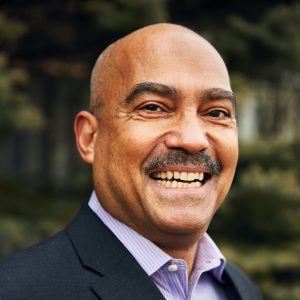DLSPH Open: New Senior Advisor, Equity and Inclusion
January 22/2021
Dear DLSPH community,
In the midst of very difficult times, I’m very pleased to share some good news: Asst. Prof. Akwatu Khenti, a longtime DLSPH faculty member and health equity and stigma researcher, has been appointed to a new position at DLSPH as Advisor, Equity and Inclusion.
As a school, we are committed to improving the representation of Black, Indigenous and other racialized students, staff and faculty, and to creating a more inclusive environment for our racialized community members. Our 2019-2024 Academic Plan lays out some of the specific goals we hope to achieve. Given the importance of these goals, I am creating this senior position, reporting directly to me, to advance inclusion, equity and diversity across the entire school.
As one of his first initiatives, Akwatu intends to establish an inclusion and equity working group, comprised of students, staff and faculty members. Among other things, this group will examine DLSPH policies and procedures with an equity and inclusion lens, proposing changes where appropriate. The committee’s strengths-based approach includes identifying and exemplifying course work and materials that are helpful in promoting equity and inclusiveness in our community. Please watch for an email in the coming weeks inviting you to take part in this committee.
This work will not be easy, or quick. But I know I speak for myself and senior leadership when I say we’re committed to doing better. As Akwatu says, “It’s going to be a challenge, but not an overwhelming challenge, because of the dedication, talent and expertise of the people within our school that we are able to draw upon.”
Many of you may already know Akwatu from his teaching of global perspectives of the health of women and children along with international health, peace-building and human rights at DLSPH for the past 12 years. A long-time researcher on Black mental health and global mental health capacity-building at CAMH, he has worked in the field to strengthen mental health within primary care and reduce mental health stigma among health professionals. Akwatu tells me he draws his optimism from these efforts: “The lessons I bring from demonstrable success in the mental health arena gives me confidence that racial stigma can be reduced.”
He also has a strong research interest in the ways in which racism and social determinants of health intersect to drive Toronto’s patterns of gun violence, and has studied this phenomenon in 140 of the city’s neighbourhoods. You can learn more about a cutting-edge course he is teaching this spring at DLSPH. This work is aimed at building public health capacity to utilize newly available race-based data to explore the effects of systemic anti-Black racism on the health and well-being of Black communities in Toronto.
Akwatu is also a seasoned senior administrator, having served as assistant deputy minister at the Ontario Anti-Racism Directorate for three years, beginning in 2017. He has received many awards for teaching, research and human rights work, such as the Faculty of Medicine’s Educational Excellence for Community Care Award and the Queen’s Golden Jubilee Medal for innovative use of culture in substance abuse programming.
I very much admire Akwatu’s philosophy of humanism and inclusion, combined with a pragmatic understanding of how to use data to achieve change in government policy. I believe his approach will help lead our school and the public health field into a more equitable and inclusive era that will better serve our communities.
To that end, I’d like to give the last words to Akwatu: “My anti-racist perspective assumes racism is embedded in our culture and can/must be unlearnt. Centuries of laws and policies have produced public stigma that sustains a variety of implicit biases. Nonetheless, our team’s creative dynamism and wealth of research expertise fuel my confidence; more practically, the lessons from successful public health efforts, in areas such as tobacco cessation and HIV and mental health stigma reduction, provides tools and resources that can engender positive outcomes in this marathon effort.”
Now more than ever, I’d like to encourage our entire DLSPH community to prioritize your own wellness and practice self-care as much as you can. Better days are coming. Please take care of yourselves.
All my best,
Adalsteinn (Steini) Brown
Prof and Dean
Dalla Lana School of Public Health
